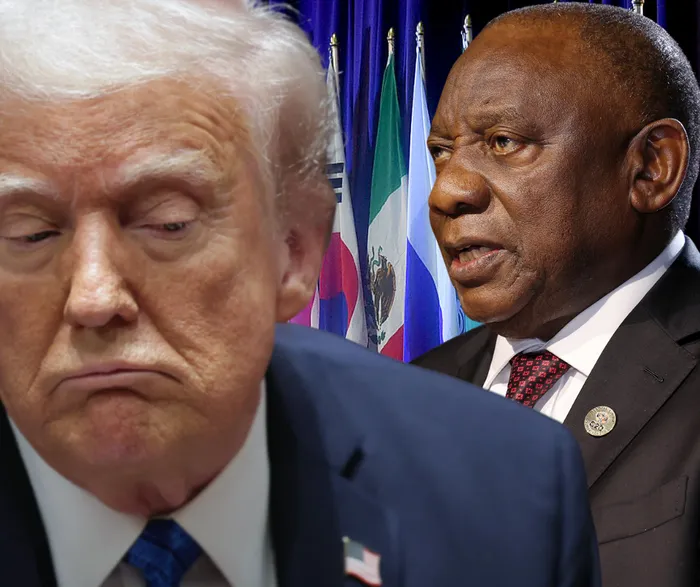Germany warns Trump on SA 'rift'

Analysts and experts believe Donald Trump's decision to prohibit South Africa from the G20 summit next year, as well as stopping subsidies, aims to prove the US's power and dominance.
Image: IOL Graphics
A DONALD Trump-led administration's rift with South Africa would ultimately not be in Washington's interest, says German Chancellor Friedrich Merz who has urged the US president to reconsider his decision to bar Pretoria from the 2026 G20 summit in Florida.
The US and South Africa are at odds over a range of domestic and foreign policies and last week Washington snubbed the G20 summit in Johannesburg.
On Wednesday Trump said he was excluding South Africa from the 2026 summit, due to be held at his own golf resort in Miami, citing alleged "horrific Human Rights Abuses" against white South Africans.
"I will try, in my conversations and meetings with the American president... to convince him that it would be good to invite all members of the G20 to America," Merz told a press conference in Berlin.
"I regretted that the American government was not present last weekend in Johannesburg," Merz said, adding that the G20 was "one of the most important multilateral formats we still have in the world".
Merz said the American government is “needlessly relinquishing influence, including influence in a part of the world that is becoming increasingly important."
President Cyril Ramaphosa, through his spokesperson, Vincent Magwenya, said it was regrettable that, despite the efforts and numerous attempts by Ramaphosa and his administration to reset diplomatic relations with the US, Trump continues to impose punitive measures against South Africa based on “misinformation and distortions”.
Ramaphosa also called on members of the G20 to reaffirm its continued operation in the “spirit” of multilateralism, based on consensus, with all members participating on an equal footing in all of its structures.
South Africa has decried what it calls Trump's "punitive measures... based on misinformation and distortions about our country".
The two nations have also fallen out over issues including South Africa's case accusing Israel of genocide in Gaza at the International Court of Justice, the UN's top court. Trump has meanwhile slapped 30 percent tariffs on South Africa, the highest in sub-Saharan Africa.
Meanwhile, the South African Chamber of Commerce in the USA (SACCUSA) announced that the African Growth and Opportunity Act (AGOA) expired on Thursday, with no definitive time frames from Congress on its renewal or South Africa’s re-inclusion.
“Expiration of AGOA is not just a procedural lapse—it is a shock to the foundation of US–South Africa trade. Our members demand decisive leadership now. A promise of extension is insufficient when jobs, investment and years of trust hang in the balance,” said President Neil Diamond.
Economist, Jeffrey Dinham, said South Africa could have done more to repair its relationship with the US.
Dinham added that although the US firms that see profitable opportunities in South Africa are unlikely to view this as a decisive reason to exit, the real risks stem from issues “we can (and should) address domestically”.
This includes labour regulations, rising criminality and mafia-style activity, substantial bureaucratic obstacles, and deteriorating infrastructure.
In a statement, the ANC said they were ready to engage American political parties to discuss issues of common interests.
“The ANC further registers its disappointment at the continued reference to conditions that are not existing in South Africa but peddled solely by the USA. We recently hosted a successful G20 summit that was attended by leaders and hundreds of journalists and civil society organisations. They moved freely around in the country for the entire 2025 unhindered. None of them witnessed or saw the so-called genocide in South Africa. We call on patriotic South Africans to appreciate that time has come for all of us to stand together against disinformation and undiplomatic rhetoric peddled by the USA,” said ANC spokesperson Mahlengi Bhengu.
Cape Times